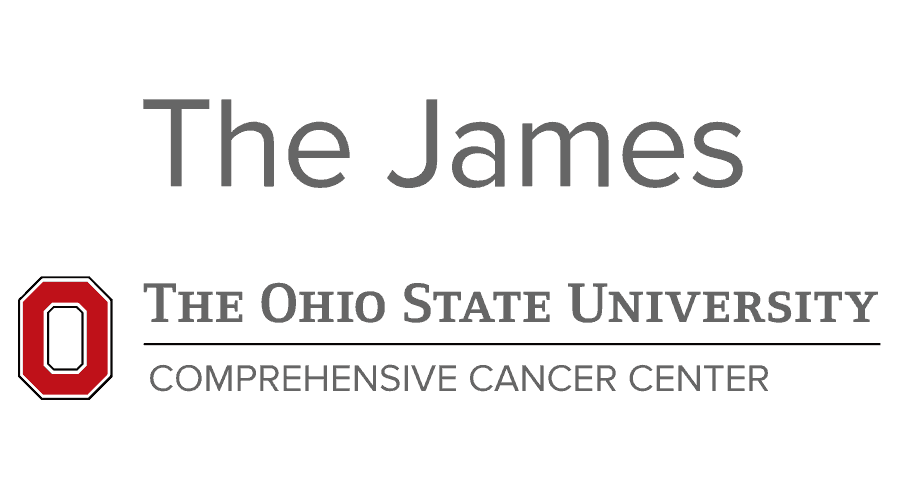Biorepository
Navigation Menu:
What are the quality measures for the biorepository?
The biorepository is accredited by the College of American Pathologists, which ensures that the Biorepository meets the highest national standards for biospecimen processing and storage.
Who uses the banking services?
The biorepository provides biospecimen processing and banking services to investigators for IRB-approved and grant-funded projects, including but not limited to SPOREs, P01s, R01s, and statewide Pelotonia-funded initiatives.
What specimen processing techniques are utilized?
Specimen processing techniques include but are not limited to, serum and plasma, DNA extraction from peripheral blood, frozen tissue, saliva, buccal swabs, immortalized lymphoblast or fibroblast cell lines and histology services such as cutting for spatial transcriptomics.
How are specimens stored?
The Biorepository maintains cold storage equipment, including liquid nitrogen and ultra-cold freezers and refrigerators. Temperature and humidity monitoring are checked and recorded within the Biorepository daily. The humidity and temperature-sensitive equipment must be operated between 20 and 80 % humidity and 15° - 25° C.
Storage recommendations for blood, blood products, molecular derivatives (DNA), urine, and saliva are in ultra-cold freezers (-70°C or -80°C). Frozen tissue is stored in the vapor phase of liquid nitrogen freezers. Buccal cells are stored at ambient room temperature (15° - 25° C) in a secured storage environment that is protected from excessive heat, humidity, dryness and pests.
Do you have a policy on thawing frozen specimens?
Unnecessary thawing and refreezing of frozen specimens must be avoided or minimized. When thawing/refreezing is necessary, biorepository personnel will record the freeze/thaw cycle number in the inventory management system and use only validated protocols to ensure the continued quality of specimens and stability of analytes of interest.
Specimens are maintained in locked freezers that are in a secure building that can only be accessed by employee keycards.
Does the biorepository have back-up power?
The Biorepository is monitored by the Rees Scientific Environmental monitoring system to ensure proper environmental and storage conditions 24 hours a day. In the event of a power failure, the biorepository is connected to a diesel-powered generator that will keep the freezers operating until full power is restored.
How many specimens are stored in the Biorepository?
To date, the Biorepository has banked over 549,800 specimen aliquots.
Is there a fee to bank? Yes, please contact Jason Bacher, BSSR Manager, Jason.Bacher@osumc.edu.
What if the service I am seeking is not listed? Please contact Jason Bacher, BSSR Manager, Jason.Bacher@osumc.edu.
How do I obtain a quote for services or bulk services? Please contact Jason Bacher, BSSR Manager, Jason.Bacher@osumc.edu.
What histology services are provided? Sectioning & H&E staining of FFPE; embedding, sectioning and H&E staining frozen tissue, and cutting for spatial transcriptomics.
Do you offer services to non-OSU companies or requestors? Our Biorepository is designed to support OSU investigators and their collaborators.
I’m located on main campus. How are specimens distributed to me? A courier operates Monday – Friday between main campus and Polaris. Deliveries to main campus occur at the main desk, 1st floor of OSU Brain & Spine. The courier schedule:
|
BEST COURIER POLARIS SCHEDULE |
|||||
|
Leaving Polaris |
Arriving Human Cancer Genetics Kenny Rd (only when needed) |
Leaving Human Cancer Genetics Kenny Rd (only when needed) |
Arriving OSU Brain & Spine Hospital, Central Processing, Tissue Procurement, The HUB |
Leaving OSU Brain & Spine Hospital, Central Processing, Tissue Procurement, The HUB |
Arriving Polaris |
|
8:45 am |
9:00 am |
9:05 am |
9:40 am |
10:00 am |
10:35 am |
|
10:40 am |
11:35 am |
11:45 am |
12:50 am |
||
|
12:55 pm |
1:15 pm |
1:30 pm |
1:50 pm |
||
